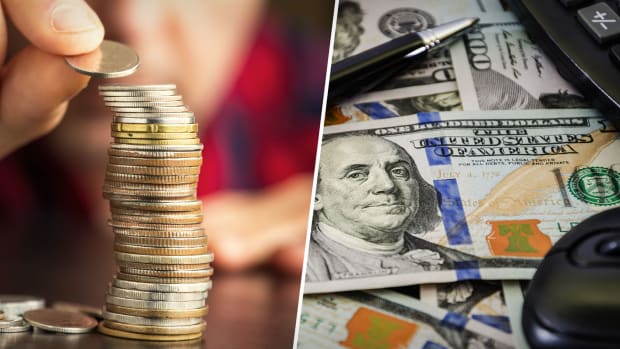Cash was trash over the past 13 years, as miniscule interest rates kept investors away from the asset, pushing them largely to stocks.
But now that the Federal Reserve has embarked on its program to raise interest rates, investors are starting to feel a little differently about cash. The Fed boosted rates by 25 basis points in March, and many investors expect to see hikes of at least 50 basis points in both May and June.
That scenario is pushing short-term interest rates up, which should push rates up for savings accounts and money-market funds too. The three-month Treasury bill yield has jumped 78 basis points this year to 0.84%.
The weakness of stocks and bonds in recent months has made cash look more attractive. The S&P 500 has slid 11% so far this year, and the Bloomberg U.S. Aggregate bond index has dropped 9%.
Rampant Inflation, the Fed’s rate hikes and the war in Ukraine has investors worried about stocks and bonds. Consumer prices soared 8.5% in the 12 months through March.

Shutterstock
Stashing Cash
BlackRock, the world’s biggest money manager, is lifting cash positions by more than 50% in many accounts, Rick Rieder, BlackRock's chief investment officer of global fixed income, told The Wall Street Journal.
Among the top savings account rates listed on Bankrate.com are Bask Bank, 0.8%; LendingClub, 0.7%; CIBC, 0.62%; Marcus (Goldman Sachs), 0.6%; Capital One, 0.6%; CIT Bank, 0.6%; and Barclays, 0.55%. Keep in mind that the banks with the highest rates often offer online accounts only with no check-writing privileges.
Among the top money-market rates listed on Bankrate.com are GFG Community Bank, 0.8%; Sallie Mae, 0.65%; BrioDirect, 0.55%; CIT Bank, 0.55%; First Internet Bank of Indiana, 0.5%; Discover Bank, 0.4%; and VirtualBank, 0.4%.
If you’re looking for safety and yield, and you don’t need your money back soon, you might consider Treasury Series I Savings Bonds. You can get more information about them on the Treasury’s web site. Keep in mind you can only buy $10,000 worth of I Bonds per year, plus up to $5,000 if you use a tax refund for your purchase.







